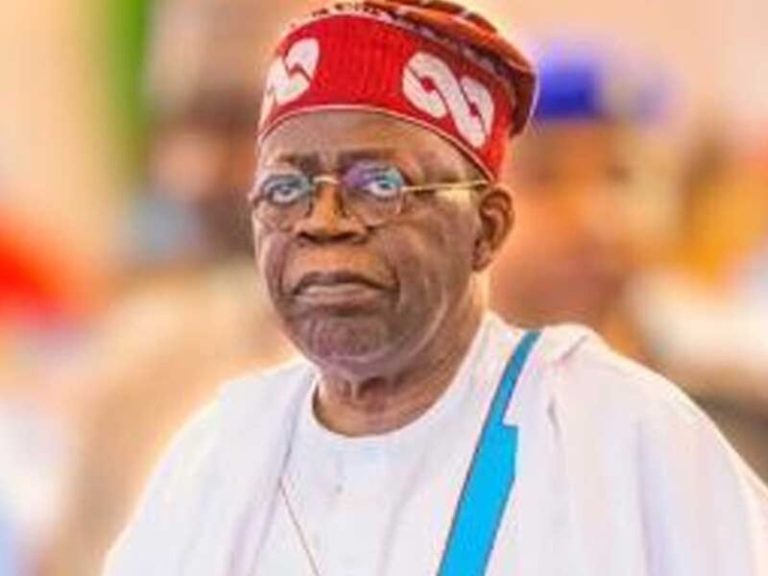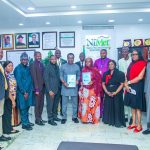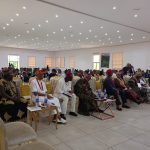By Ekuson Nw’Ogbunka, Abuja
The Minister, Federal Ministry of Industry, Trade and Investment (FMITI), Dr Jumoke Oduwole has said that President Bola Ahmed Tinubu’s administration has made significant strides in stabilizing the economy through key policy decisions, including the 2023 subsidy removal, reforms in the Nigerian National Petroleum Company (NNPC), among others. These efforts, according to her, have begun to yield positive results, setting the stage for sustained economic growth.
The Minister spoke to journalists at the ongoing meeting of the Economic Community of West African States’ (ECOWAS) 4th Joint Meeting of Ministers of Trade and Industry in Abuja, Nigeria Thursday.
According to her, with a renewed focus on: “Made in Nigeria,” the government is encouraging both public and private sectors to prioritize local production and consumption, adding, that the initiative is expected to boost economic development and create new opportunities for growth. Nigeria, she went on, is at the forefront of digital trade protocols in Africa, leveraging the competitiveness of its youth in the digital space, even as she says that the emerging sector offers promising prospects for economic expansion, allowing individuals to work remotely and access global markets.
However, in a press statement from Dr Adebayo Thomas, Director Press and Public Relations, FMITI, the ECOWAS is presently, hosting the 4th Joint Meeting of Ministers of Trade and Industry in Abuja, Nigeria, from May 15-16, 2025. This gathering brings together key stakeholders to accelerate regional economic integration, enhance industrial growth, and strengthen investment cooperation across West Africa.
Key objectives of the gathering are to accelerate regional economic integration, deepen economic partnerships and advance implementation strategies for sustainable trade growth and industrial competitiveness; Enhance Industrial Growth, by harmonizing industry standards through the ECOWAS Standards Harmonisation Model (ECOSHAM) and reinforce industrial policies; and strengthen Investment Cooperation, through assessing the ECOWAS Common Investment Market (ECIM) framework for adoption, promoting a collective regional approach to investment promotion and economic cooperation.
Key discussions are: Renegotiation of bound tariffs by reviewing bound tariffs at the World Trade Organisation (WTO) to foster better trade agreements; Economic Partnership Agreement (EPA), by reviewing it with the European Union to strengthen economic ties; Industry Standards Harmonization, through implementing ECOSHAM to standardize industry practices across member states; and ECIM Framework, through evaluating the ECIM framework for adoption to promote collective regional investment approaches.
Expected outcomes, include: Policy recommendations, through adopting key policies, shaping ECOWAS’s economic strategies: Regional Standards Review, by reviewing regional standards within the textile sector; and Thriving Business Environment, through creating a thriving environment for businesses, industries, and investment across the region.
This meeting however aligns with ECOWAS’s Vision 2050, focusing on structural transformation and private sector development. With the African Continental Free Trade Area (AfCFTA) gaining momentum, the gathering provides a platform for Ministers to explore ways to deepen economic partnerships and advance sustainable trade growth and industrial competitiveness.











